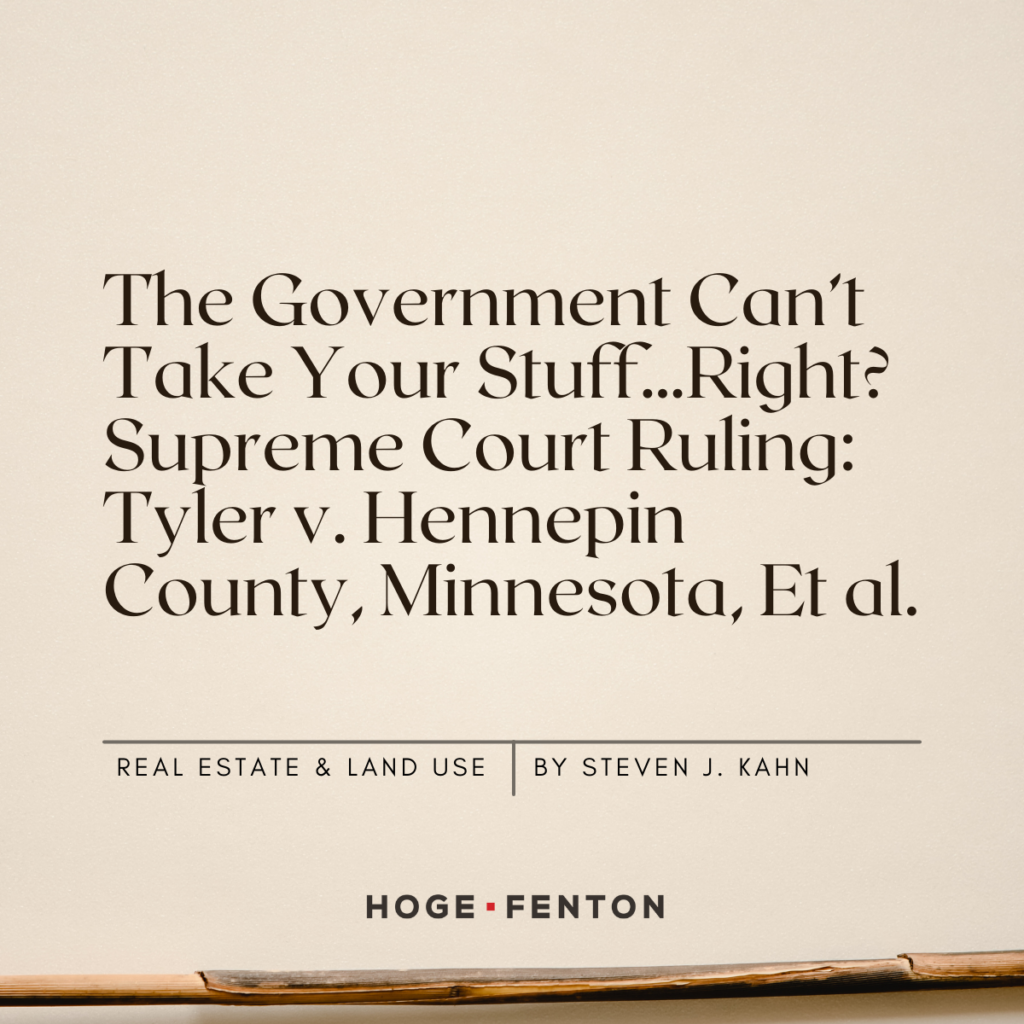The Government Can’t Take Your Stuff…Right? Supreme Court Ruling: Tyler v. Hennepin County, Minnesota, Et al.
By Steven J. Kahn | 06.15.2023 | Firm Post

Imagine this: You forgot to pay your property taxes. The county eventually sells your house at auction, to satisfy the tax bill. Fine. But the county sold your house for more than the tax bill. There are excess funds. Who gets them? You, right, because it was your house and that money was your equity.
But in reality, Hennepin County, Minnesota was pocketing all that change for itself instead of returning it to the homeowner. Sounds crazy, right? Well, until last week this was an unsettled issue of law.
Thankfully, the Supreme Court unanimously ruled that when the county keeps the value of your home above what is owed, that’s an unconstitutional taking in violation of the Fifth Amendment and an unconstitutional excessive fine in violation of the Eighth Amendment. As the Court explained:
“The principle that a government may not take from a taxpayer more than she owes is rooted in English law and can trace its origins at least as far back as the Magna Carta. From the founding, the new Government of the United States could seize and sell only “so much of [a] tract of land . . . as may be necessary to satisfy the taxes due thereon.” Act of July 14, 1798, §13, 1 Stat. 601. Ten States adopted similar statutes around the same time, and the consensus that a government could not take more property than it was owed held true through the ratification of the Fourteenth Amendment. Today, most States and the Federal Government require excess value to be returned to the taxpayer whose property is sold to satisfy outstanding tax debt.”
This case has potentially broad implications for the Takings Clause and property rights: The government can’t take your stuff! And your stuff definitely includes your home and your home equity.
About Hoge Fenton
Hoge Fenton attorneys have deep experience and local knowledge in the Northern California public and private real estate arenas. That local knowledge and relationships with key players can often make the difference in a deal getting done. We have also assisted clients with real estate transactions in other parts of the United States.
With offices in the Silicon Valley, Peninsula, and Tri-Valley areas, and a global network of more than 90 distinguished firms in 60 countries, Hoge Fenton can assist with most of our clients’ key legal needs, regardless of their size, location, industry, or legal matter. Getting excellent legal service should be as easy as contacting one trusted professional. Our goal is to make it easy by providing a single, coordinated experience.









